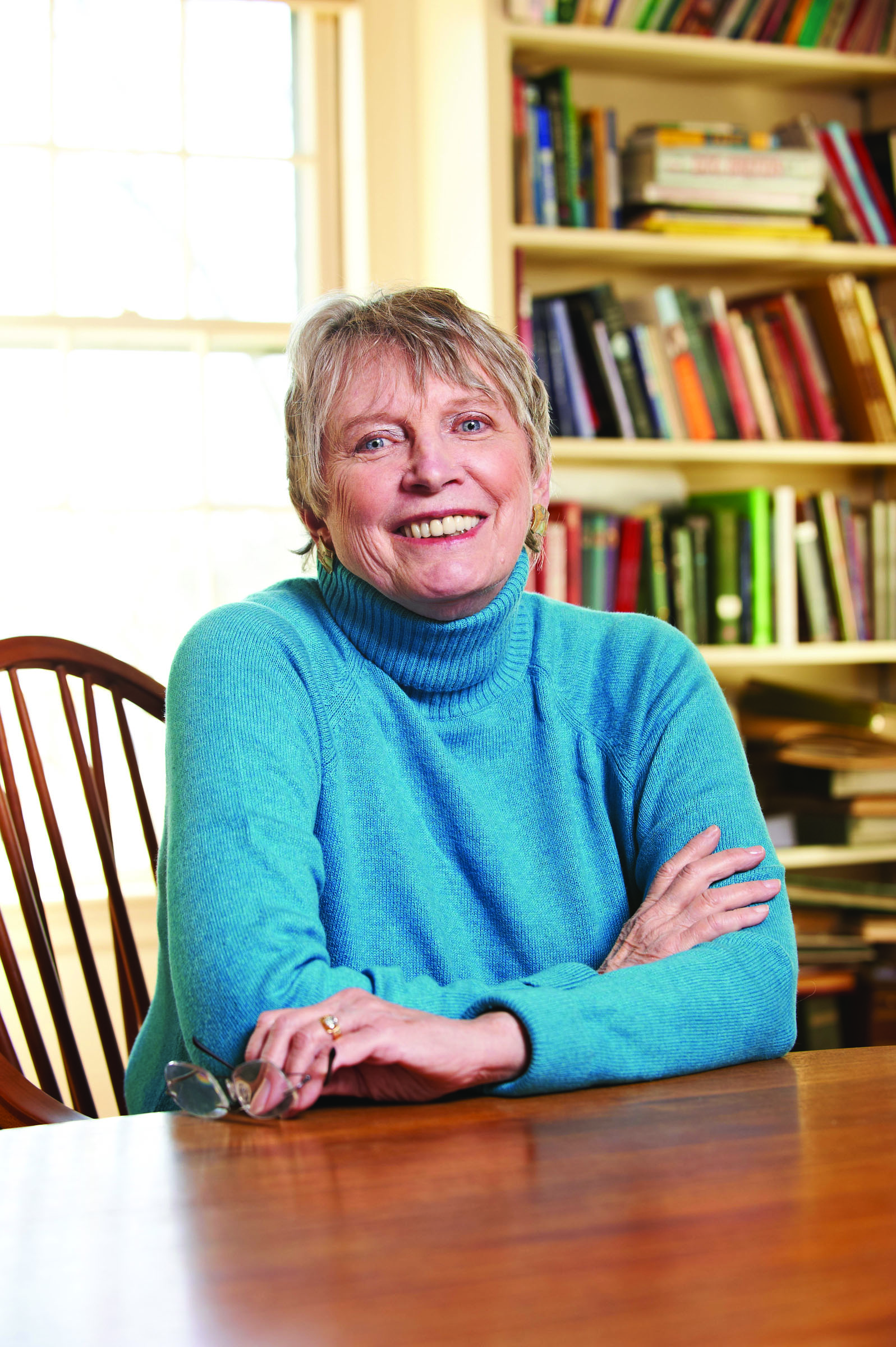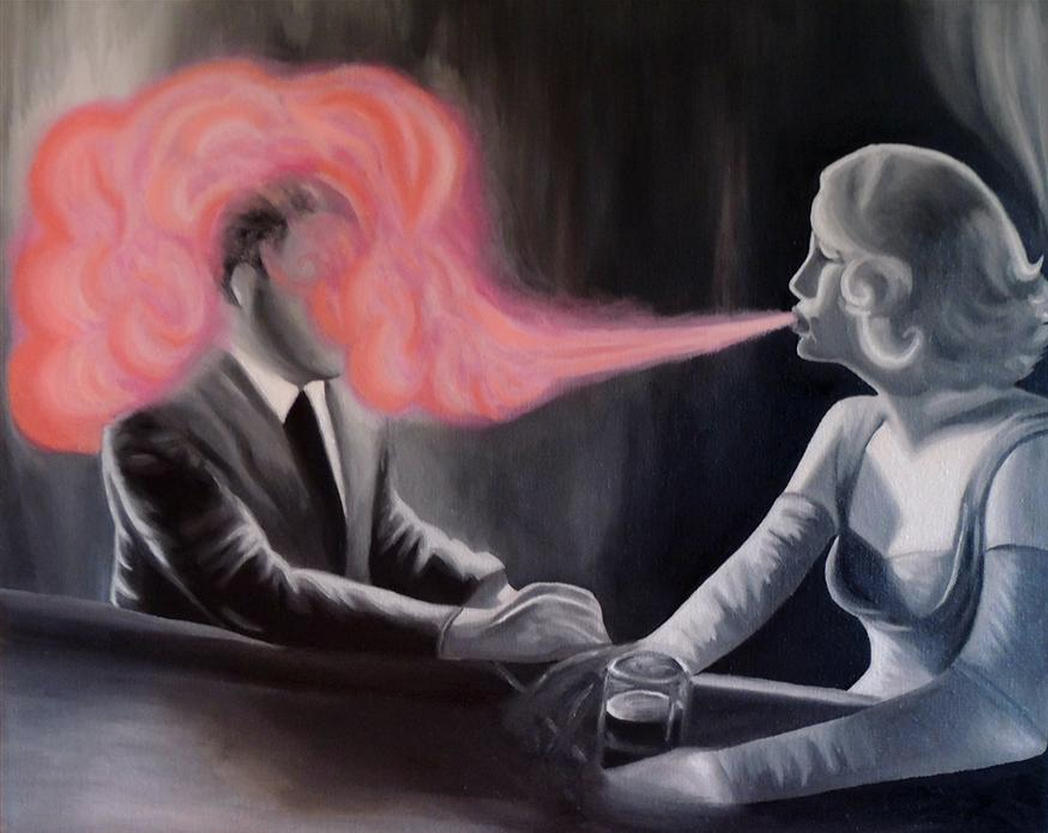How to Talk about Uncomfortable Things: Words of Wisdom from Lois Lowry

WORDS / CAROLINE BEIMFORD
PHOTO / MATT MCKEE
“Sometimes books are a very comfortable way to talk about uncomfortable things,” writes Lois Lowry, in response to a child emailing to inform her that Anastasia Has the Answers “is not a kid’s book” because “it has bad things in it.”
This complaint is a variation on a theme Lowry addresses often, and which she tackled frequently as Keynote Speaker for Fayetteville’s 2015 True Lit Festival on October 7. Two-time winner of the Newbury Medal for Number the Stars and The Giver, Lowry is an international force in children’s and young adult literature, and her books are among the most celebrated and challenged for their dark and complex subject matter. As a result, Lowry has become an expert, not only at telling stories, but at talking about her craft—discussing “what she does and why she continues to do it.”
“When I tell people I write books for children,” Lowry quips, early in her keynote, “they become very disappointed. But then some of them will really persevere. They’ll ask: do you think you will eventually write for adults?”
In a conversation with Idle Class, Lowry expands on her impulse to write for children, and her decision to treat young readers as capable of engaging with a wide range of challenging issues—from questioning authority and dealing with terminal illness, to depictions of murder and the Holocaust.
Lowry: “Well, I’ve never been a teacher—I admire teachers but I’ve never been one, and so I’m always a little suspicious of books that attempt to teach or impart moral lessons, because I think they run the risk of becoming moralistic and didactic. A lot of people who think they want to write for kids think they want to teach kids to be better people. I think you don’t do that through books. What you do is tell stories. And kids take away from the stories what they need. I think for me the reason I’ve been able to do it is because I write the books I wanted to read as a kid. I reenter my childhood self. It’s difficult to describe, but I’m able to enter the consciousness of a young person, the protagonist, and then I become that person, in order to tell the story. Of course, if it’s a good story, the reader is going to take something away from it, but it’s not going to be the same for every reader. I think that’s the mistake some people make when they write unsuccessful books for kids—books that kids don’t like— they try to impose something. And kids can smell it, that teaching moment.”
She goes on to talk about her process and approach to genre:
Lowry: “I just enter the story as best I can through the protagonist. I don’t think about the audience at all. I don’t think about how ‘this is for a young person, so it should be simplistic,’ I just tell the story and then the publisher is the one who makes the decision about who it should be marketed to. And I know I’ve written some books that have been difficult that way. One in particular that isn’t well known but is one of my favorites is a book called Autumn Street, published back in 1980. It’s autobiographical and deals with a time in my life when I was very young and a childhood friend was murdered, so the story is seen through the eyes of a very young child but the content is very dark and the publisher didn’t know who the book was for. The child in the book was six, but you don’t want six year olds reading it, but of course that was their problem. It’s found a wonderful audience among certain people, but it’s never going to be wildly popular.
“At any rate, since I don’t think about the audience when I’m writing, that means I don’t avoid things that other people writing ‘for kids’ might steer away from. I mean, just because I’m me, I’m not going to write explicit sex scenes into my books, but The Giver has been criticized by some parents because there’s a scene in which a twelve year old boy bathes an elderly woman and she’s in the bathtub and she’s naked, of course, and that didn’t trouble me when I was writing it—I thought it was a very tender scene—but it freaked out a lot of parents.”
When she mentions this scene in her keynote, Lowry notes how it was left out of Jeff Bridges’ film adaption in the interests of broadening the film’s potential audience. When Bridges offered her a cameo in the film as an Elder, she declined, joking—“But if you hadn’t cut the bathing scene, I could’ve been the naked lady!”
In response to a final query for book recommendations, both classic and contemporary, Lowry laughs: “I tend not to read other so-called YA books, and so what I read are adult books, which I don’t suppose would appeal to young people. But I’m 78 years old, so I don’t want to read a book that appeals to a twelve year old—is that weird? I’m happy writing them, but I tend not to read them. I know there are a lot of good ones out there. What I will say, is that there are plenty of adult books that, if they were written today, would be published as YA books. The Catcher in the Rye for example.”
In the closing comments of her speech, Lowry raises The Catcher in the Rye again, as part of her theory about why some books, The Giver in particular, become lightning rods for discussions of what is considered “appropriate” reading material for children.
She said, “It seems that each generation has an iconic book that challenges the hypocrisy of the previous generation. For my generation it was Catcher in the Rye, for my children’s generation it was Slaughterhouse Five, and I think for your generation it’s The Giver.”
Though Lowry claims not to consider her audience or the controversies too much, her attitude towards these questions seems to be summed up in how she handles her fan mail. Elaborating on her story of the child who wrote her a series of indignant emails about the “bad things” in Anastasia Has The Answers, Lowry goes on to say: “But I don’t care if they’re rude, I love this child. She’s struggling to grow up and figure out who she’ll be and what she’ll believe, and she and I have a connection now.” Lowry concludes: “Children are profoundly affected by what they read and so I feel a profound responsibility whenever I sit down to write.”
VISIT: LOISLOWRY.COM

Previous Story
The Triple Threat: Robert Ford’s talents range from writing to acting to music. But one of his greatest challenges has been making sure that TheatreSquared, the company he co-founded, makes its mark.



1 comment
Great story. Lois Lowry is such a gem!